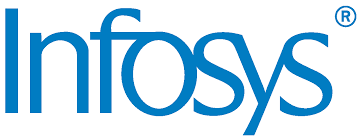
Understanding Halal Investment Principles: Sharia Compliant Investing
By Fardeen
•In today's world, many individuals are looking for investment opportunities that align with their ethical and religious beliefs. One such avenue is halal investment principles, which are rooted in Islamic finance. These principles provide a framework for investing in a manner that is compliant with Sharia law. As more people become aware of the ethical and social responsibilities associated with their financial choices, the popularity of halal investing continues to grow.
Halal investing isn't just for Muslims; halal investment principles can appeal to anyone interested in ethical investing. By focusing on industries and practices that are socially responsible, halal investments offer a unique perspective on how money can be utilized for good. In other words, whether you're new to investing or looking to diversify your portfolio, understanding the basics of halal investing is crucial.
In this article, you will learn about the fundamental principles of halal investing, the importance of these investments in Islamic finance, and the ethical and social benefits they bring. We will also explore the role of Shariah boards in certifying investments and compare halal investments with conventional ones. Additionally, we will delve into the specific principles of halal investing in India, provide case studies of successful halal investments,. and introduce interactive tools to help you plan your halal investment journey. Finally, we will guide you through the steps to start halal investing and highlight various halal investment products available in the market.
So, if you're ready to discover how you can make your investments align with your values, let's dive into the world of halal investing!
Understanding Halal Investment Principles
halal investment principles section explores Understanding Halal Investment Principles in detail. We'll examine the key aspects and provide valuable insights to help you understand this topic better. In other words, the following subsections will break down specific elements for a more comprehensive understanding.
Basic Principles of Halal Investing
Halal investing is guided by a set of principles derived from Islamic law, also known as Sharia. These principles ensure that investments are made in a manner that is ethical, just, and socially responsible. For example, when it comes to halal investment principles, here are the basic principles:
- Prohibition of Interest (Riba): Islamic law strictly prohibits earning or paying interest. Instead, investments should generate profits through legitimate business activities.
- Avoidance of Unethical Businesses: Investments should not be made in companies involved in activities considered haram (forbidden), such as alcohol, gambling, tobacco, and pork-related businesses.
- Profit and Loss Sharing: Halal investments often involve a partnership where profits and losses are shared among the investors and the business.
- Asset-Backed Financing: Investments should be backed by tangible assets, ensuring that they have intrinsic value and are not purely speculative.
- Ethical Conduct: Businesses and investments should be conducted in a manner that is fair, transparent, and respects the rights of all parties involved.
Importance of Halal Investment in Islamic Finance
Halal investments play a crucial role in Islamic finance, which aims to promote economic justice and social welfare. By adhering to Sharia principles, halal investments ensure that wealth is distributed fairly and that the financial system operates with integrity. However, here are some key reasons why halal investments are important:
- Promoting Ethical Behavior: By avoiding investments in unethical businesses, halal investing promotes responsible and ethical behavior in the financial sector.
- Encouraging Social Responsibility: Halal investments often focus on socially responsible projects that benefit the community, such as infrastructure development, healthcare, and education.
- Ensuring Financial Stability: By avoiding speculative and high-risk investments, halal investing contributes to the stability and resilience of the financial system.
- Supporting Economic Growth: Halal investments provide funding for businesses and projects that create jobs, stimulate economic growth, and improve living standards.
Ethical and Social Benefits of Halal Investing
One of the most compelling aspects of halal investing is its focus on ethical and social responsibility. By adhering to halal investment principles, investors can contribute to a more just and equitable society. Here are some of the ethical and social benefits of halal investing:
- Promoting Fair Trade: Halal investments support businesses that engage in fair trade practices, ensuring that workers receive fair wages and that business practices are sustainable.
- Encouraging Environmental Sustainability: Many halal investments focus on environmentally friendly projects, such as renewable energy and sustainable agriculture, which help protect the planet for future generations.
- Supporting Charitable Causes: A portion of the profits from halal investments is often directed towards charitable causes, such as poverty alleviation, healthcare, and education.
- Fostering Community Development: Halal investments often prioritize projects that benefit local communities, such as affordable housing, clean water, and healthcare facilities.
Role of Shariah Boards in Certifying Investments
Shariah boards play a vital role in the halal investment process. Specifically, these boards are comprised of scholars and experts in Islamic finance who ensure that investments comply with Sharia principles. Here are some of the key functions of Shariah boards:
- Reviewing Investment Opportunities: Shariah boards review and approve investment opportunities to ensure they are halal and comply with Islamic principles.
- Providing Guidance: Shariah boards provide guidance to investors and financial institutions on how to structure investments in a manner that aligns with Sharia law.
- Monitoring Compliance: Shariah boards continuously monitor investments to ensure ongoing compliance with Sharia principles.
- Issuing Certifications: Shariah boards issue certifications for investments that meet halal criteria, providing assurance to investors that their investments are Sharia-compliant.
Comparing Halal and Conventional Investments
This section explores Comparing Halal and Conventional Investments in detail. We'll examine the key aspects and provide valuable insights to help you understand this topic better. Finally, when it comes to halal investment principles, the following subsections will break down specific elements for a more comprehensive understanding.
Key Differences Between Halal and Conventional Investments
When it comes to halal investment principles, halal and conventional investments differ in several fundamental ways. Understanding these differences can help investors make informed decisions about their financial choices. Here are some key distinctions:
- Interest (Riba): Conventional investments often involve earning or paying interest, while halal investments prohibit interest and generate profits through legitimate business activities.
- Ethical Restrictions: Conventional investments may not have specific ethical restrictions, whereas halal investments avoid businesses involved in haram activities, such as alcohol, gambling, and tobacco.
- Profit and Loss Sharing: Halal investments often involve a partnership where profits and losses are shared, while conventional investments may not have this requirement.
- Asset-Backed Financing: Halal investments are typically backed by tangible assets, ensuring they have intrinsic value, whereas conventional investments may include speculative and high-risk assets.
- Social Responsibility: Halal investments prioritize socially responsible projects that benefit the community, while conventional investments may not have the same focus.
Prohibition of Interest (Riba) in Halal Investing
One of the most significant differences between halal and conventional investments is the prohibition of interest, known as riba. In Islamic finance, earning or paying interest is considered exploitative and unjust. Instead, halal investments generate profits through legitimate business activities and partnerships. Here are some ways halal investments avoid riba:
- Equity Financing: Halal investments often use equity financing, where investors provide capital in exchange for a share of the profits generated by the business.
- Profit and Loss Sharing (Mudarabah): In a Mudarabah partnership, one party provides the capital, while the other party manages the business. Profits are shared based on a pre-agreed ratio, and losses are borne by the capital provider.
- Joint Ventures (Musharakah): In a Musharakah partnership, all parties contribute capital and share profits and losses based on their respective contributions.
- Lease Financing (Ijarah): In Ijarah, an asset is leased to a party for a specific period, and the lessee pays rent. The asset remains the property of the lessor, and the lessee has the option to purchase it at the end of the lease term.
Ethical Considerations in Halal Investments
Ethical considerations are at the core of halal investing. By adhering to Islamic principles, halal investments promote fairness, transparency, and social responsibility. When it comes to halal investment principles, here are some ethical considerations in halal investments:
- Avoiding Haram Activities: Halal investments avoid businesses involved in activities considered haram, such as alcohol, gambling, tobacco, and pork-related businesses.
- Supporting Fair Trade: Halal investments support businesses that engage in fair trade practices, ensuring that workers receive fair wages and that business practices are sustainable.
- Encouraging Environmental Sustainability: Many halal investments focus on environmentally friendly projects, such as renewable energy and sustainable agriculture, which help protect the planet for future generations.
- Promoting Social Welfare: Halal investments often prioritize projects that benefit the community, such as affordable housing, clean water, and healthcare facilities.
Profit and Loss Sharing in Halal Investments
Profit and loss sharing is a fundamental principle of halal investing. This principle ensures that all parties involved in an investment share the risks and rewards fairly. Here are some common profit and loss-sharing arrangements in halal investments:
- Mudarabah: In a Mudarabah partnership, one party provides the capital, while the other party manages the business. Profits are shared based on a pre-agreed ratio, and losses are borne by the capital provider.
- Musharakah: In a Musharakah partnership, all parties contribute capital and share profits and losses based on their respective contributions.
- Murabaha: In a Murabaha arrangement, the seller provides the buyer with the cost and markup prices of an asset. The buyer purchases the asset and pays the seller over an agreed period.
- Istisna: In an Istisna contract, one party agrees to manufacture or construct goods for another party at a future date. The price is agreed upon in advance, and payments may be made in stages as the work progresses.
Principles of Halal Investing in India
This section explores Principles of Halal Investing in India in detail. We'll examine the key aspects and provide valuable insights to help you understand this topic better. When it comes to halal investment principles, the following subsections will break down specific elements for a more comprehensive understanding.
Overview of Halal Investment Options in India
India offers a range of halal investment options for investors looking to align their financial choices with Islamic principles. These options provide opportunities to invest in various sectors while adhering to Sharia law. Conversely, when it comes to sharia complaint principles, here are some popular halal investment options in India:
- Shariah-Compliant Mutual Funds: These mutual funds invest in companies that comply with Sharia principles, avoiding businesses involved in haram activities.
- Halal Stocks: Investors can invest in individual stocks of companies that meet Sharia criteria, such as those in the technology, healthcare, and consumer goods sectors.
- Real Estate Investments: Halal real estate investments involve purchasing and leasing properties in a manner that complies with Sharia principles, such as avoiding interest-based financing.
- Sukuk (Islamic Bonds): Sukuk are Sharia-compliant bonds that provide investors with a share of the underlying asset and its profits, rather than interest payments.
Regulatory Framework for Halal Investments in India
The regulatory framework for halal investments in India is designed to ensure that these investments comply with both Islamic principles and local regulations. First, here are some key aspects of the regulatory framework:
- Securities and Exchange Board of India (SEBI): SEBI oversees the regulation of mutual funds and other investment vehicles in India, ensuring that they adhere to local laws and regulations.
- Shariah Boards: Shariah boards comprised of Islamic scholars and finance experts review and certify investments to ensure they comply with Sharia principles.
- Reserve Bank of India (RBI): The RBI regulates the banking sector, including Islamic banks and financial institutions that offer Sharia-compliant products.
- Islamic Financial Institutions: Several Islamic financial institutions in India offer halal investment products, such as Sharia-compliant mutual funds, stocks, and Sukuk.
Examples of Shariah-Compliant Mutual Funds in India
Shariah-compliant mutual funds are a popular investment option for those looking to invest in accordance with Islamic principles. When it comes to sharia complaint principles, here are some examples of Shariah-compliant mutual funds in India:
- Tata Ethical Fund: This mutual fund invests in companies that comply with Sharia principles, focusing on sectors such as technology, healthcare, and consumer goods.
- Reliance ETF Shariah BeES: This exchange-traded fund (ETF) tracks the Nifty50 Shariah index, investing in Sharia-compliant companies listed on the National Stock Exchange of India.
- Taurus Ethical Fund: This mutual fund invests in companies that meet Sharia criteria, avoiding businesses involved in haram activities such as alcohol, gambling, and tobacco.
- Quantum Shariah Fund: This mutual fund focuses on investing in companies that adhere to Sharia principles, with a diversified portfolio across various sectors.
Performance of Halal Investments in the Indian Market
The performance of halal investments in the Indian market has been encouraging, with many Sharia-compliant funds and stocks delivering competitive returns. Here are some factors contributing to the performance of halal investments:
- Growth Sectors: Halal investments often focus on growth sectors such as technology, healthcare, and consumer goods, which have shown strong performance in the Indian market.
- Ethical Investing: By avoiding businesses involved in haram activities, halal investments are perceived as more ethical and socially responsible, attracting investors who prioritize these values.
- Regulatory Support: The regulatory framework in India supports the growth of halal investments, with SEBI and Shariah boards ensuring compliance with both local laws and Islamic principles.
- Diversification: Halal investment options in India offer diversification across various sectors and asset classes, helping investors manage risk and achieve their financial goals.
Case Studies of Successful Halal Investments
halal investment principles section explores Case Studies of Successful Halal Investments in detail. We'll examine the key aspects and provide valuable insights to help you understand this topic better. The following subsections will break down specific elements for a more comprehensive understanding.
Case Study: Successful Halal Investment in Real Estate
Real estate is a popular sector for halal investments, as halal investment principles involves tangible assets and can be structured to comply with Sharia principles. Similarly, here's a case study of a successful halal investment in real estate:
When it comes to halal investment principles, case Study: A group of investors pooled their resources to purchase a commercial property in a prime location. The property was leased to a reputable business, generating rental income for the investors. The lease agreement was structured as an Ijarah contract, where the property owner leased the asset to the tenant for a specified period, and the tenant paid rent. At the end of the lease term, the investors had the option to sell the property, realizing a significant capital gain. On the other hand, the investment complied with Sharia principles by avoiding interest-based financing and ensuring that the business operating in the property was halal.
Case Study: Halal Investment in the Stock Market
The stock market offers numerous opportunities for halal investing, with many companies meeting Sharia criteria. Here's a case study of a successful halal investment in the stock market:
Case Study: An investor identified a technology company that met Sharia criteria and had strong growth potential. In brief, the company was involved in developing innovative software solutions, and its business practices were ethical and transparent. The investor purchased shares in the company and held them for several years. During this period, the company experienced significant growth, driven by increasing demand for its products and services. The investor benefited from capital appreciation and received dividends, which were reinvested in other Sharia-compliant stocks. When it comes to halal investment principles, the investment adhered to halal principles by avoiding interest-based financing and ensuring that the company's operations were ethical.
Case Study: Halal Investment in Mutual Funds
When it comes to halal investment principles, mutual funds provide a diversified and professionally managed investment option for halal investors. Here's a case study of a successful halal investment in mutual funds:
Case Study: An investor decided to invest in a Shariah-compliant mutual fund that focused on ethical businesses in the healthcare and technology sectors. The mutual fund was managed by a reputable financial institution and had a strong track record of performance. The investor made regular contributions to the mutual fund and benefited from the expertise of the fund managers. Over time, the mutual fund delivered competitive returns, driven by the strong performance of the underlying companies. That is, the investment complied with Sharia principles by avoiding businesses involved in haram activities and ensuring that the mutual fund was certified by a Shariah board.
User Testimonials on Halal Investing
Here are some testimonials from individuals who have successfully invested in halal investments:
- Testimonial 1: "I started investing in Shariah-compliant mutual funds a few years ago, and it has been a rewarding experience. The funds have delivered competitive returns, and I feel good knowing that my investments align with my ethical values." - Rashid, 35
- Testimonial 2: "Investing in halal stocks has allowed me to support businesses that are ethical and socially responsible. I have seen steady growth in my portfolio, and I am confident in the long-term potential of these investments." - Fatima, 42
- Testimonial 3: "My experience with halal real estate investments has been positive. The rental income from my properties has provided a stable source of income, and the investments have appreciated in value over time." - Ahmed, 50
Interactive Tools for Halal Investment Planning
halal investment principles section explores Interactive Tools for Halal Investment Planning in detail. We'll examine the key aspects and provide valuable insights to help you understand this topic better. First, the following subsections will break down specific elements for a more comprehensive understanding.
Halal Investment Calculators
Halal investment calculators are valuable tools for investors looking
Conclusion
In conclusion, we have delved into Understanding Halal Investment Principles: Sharia Compliant Investing, discussing the essential aspects that underscore the significance of this topic. We have analyzed the various factors influencing halal investment principles and offered insights to aid you in making well-informed decisions.
It is crucial to comprehend halal investment principles for anyone wishing to navigate this domain effectively. The information shared in this article should act as a comprehensive guide to support you on your investment journey.
We trust that you found this article both informative and valuable. If you have any further questions, please refer to the FAQ section below, where we address some common queries.
Frequently Asked Questions
What are the key benefits of halal investment principles?
The main benefits include improved efficiency, better outcomes, and enhanced understanding of the subject matter. These advantages make it a valuable area to explore for anyone interested in this field.
How can I learn more about halal investment principles?
You can learn more by reading specialized books, taking online courses, following industry experts, and participating in relevant forums and discussion groups. Practical application of the concepts is also essential for deeper understanding.
What are common misconceptions about halal investment principles?
Common misconceptions include oversimplification of complex concepts, exaggeration of benefits, and underestimation of challenges. It's important to approach this topic with a balanced perspective.
How has halal investment principles evolved over time?
This field has evolved significantly through technological advancements, changing market demands, and new research findings. The evolution continues as new insights and methodologies emerge.
What are the future trends for halal investment principles?
Future trends include greater integration with emerging technologies, more personalized approaches, and increased focus on sustainability and ethical considerations. Staying informed about these trends can help you remain competitive in this area.


